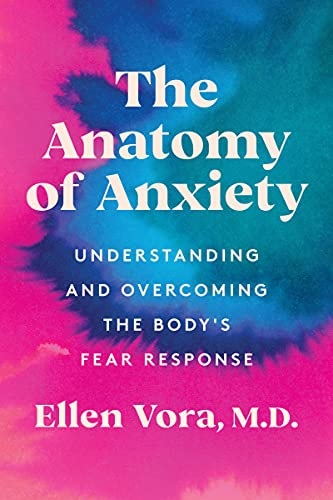Dr. Ellen Vora has a new book out, The Anatomy of Anxiety: Understanding and Overcoming the Body’s Fear Response,” and CNN has a great new interview with her.
I’d highly recommend reading the whole interview, but here’s an interesting take from Vora on the relationship between our anxiety and blood sugar.
And note: she’s got major academic cred, with a B.A. from Yale and M.D. from Columbia.
Vora:
Oftentimes, I like to start with stabilizing blood sugar because it has such a quick impact on our day-to-day anxious feelings.
The modern American diet is built on a foundation of refined carbs and milkshakes disguised as coffee drinks.
We end up on this roller coaster of blood sugar spikes chased by insulin, followed by blood sugar crashes that can feel identical to anxiety.
Stabilizing blood sugar offers powerful relief from both anxiety and the sense of doom and unease that many people carry in the pit of their stomach.
The definitive solution, to eat a blood sugar-stabilizing diet with fewer refined carbohydrates and more protein and healthy fats, is a lovely strategy.
But if that’s 180 degrees from how you’re eating now, here’s a short-term fix: Every few hours, eat a spoonful of sunflower, almond or other nut butter, ghee or coconut oil.
This creates a safety net that can blunt any blood sugar crash. Many patients have told me this intervention alone stopped their panic attacks.
There’s all sorts of other interesting stuff in the interview (And I should note that her book is #1 on Amazon right now for depression).
For example, we’ve all heard about how animals go into fight-or-flight in response to anxiety, and so do we.
But she also notes that animals have certain rituals once the stressful event has subsided — to help them ease back into their, um, animal-routine.
For example, she says an antelope shakes after it’s chased, and a goose flaps its wings in a certain way after its trauma.
We’ve all seen that in those nature documentaries.
Yet after a panic attack, what do we do?
Wouldn’t it make sense to find something equivalent to the goose flapping its wing?
I’ve probably lost cynical folks with that. But it makes, sense, no?
Every person is different, so every one might have their own flap, and I love that sentence.
Anyhow, again, it’s a great interview.
Now… if you’re a regular reader, you know that I’m completely and utterly grateful and dependent on medication for treatment.
But I also know exercise has helped me, mindfulness meditation is helping, and many other things that come from the holistic wing of the medical world.
Also, every person is different, so talk to your doctor for help, first and foremost.
Oh, speaking of which.
Find a psychiatrist here, via Psychology Today.
Find a therapist here, via Psychology Today.
And find spiritual salvation here, via the words of Christ: Jesus: “I am the way, the truth, and the life. No one comes to the Father except by me.”
If you’re having thoughts of harming yourself or others, please call the National Suicide Lifeline at 1-800-273-8255.

